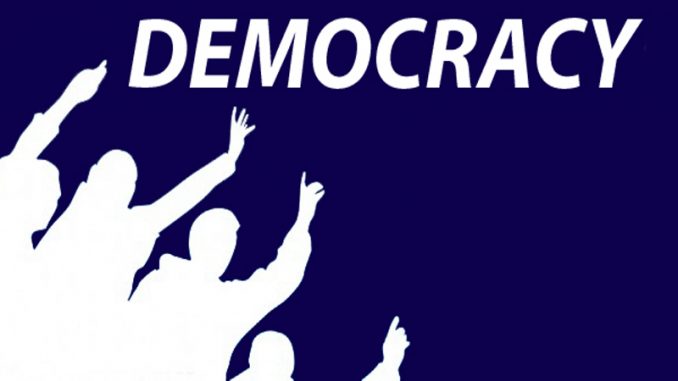
By RADHIKA NAGRATH
Freedom is the song which every human being loves to sing and democracy is the expression of this freedom on both the individual and the collective planes. Democracy signifies a freely expressed will of the people and their power through suffrage to determine their own political, economic, social and cultural systems and also their full participation in all aspects of collective life. The world celebrates September 15 as the International Day of Democracy sponsored by the United Nations. Commemorating the day, The Pioneer has spoken to some scholars on the achievements and goals of India as a democratic nation, lauded as the largest democracy of the world.
Dwelling on the significance of the democratic system of governance in India, president of Ganga Mahasabha Purushottam Sharma Gandhiwadi said, “It is on account of democracy that a person from Gujarat who used to sell tea has become the Prime Minister of the country. He is now throwing a dare to the mighty countries like China. This is the beauty of democracy prevailing in the country which leaves many across the world amazed.”
Speaking of the usefulness of the democratic system of governance, Gandhiwadi said that the beauty of democracy is manifest at the village level too thanks to the Panchayati Raj system which spreads roots across the country when Rajiv Gandhi helmed the Government. “Now, a villager takes part in electing the head of the village. The head enjoys power as long as he enjoys the support of the majority of the villagers. Through decentralisation, funds meant for the village welfare reaches straight the Panchayat sabha through post office rather than through any mediator,” he said. He, further, said that India has remained wedded to the democratic values since civilisation dawned on the land thousands of years ago. “The same vibrant democracy has been continuing now though in a different form,” he added.
This year’s theme of the celebration of the day is prevention of conflict. It calls for effective and inclusive democratic governance with respect for human rights and the rule of law. Are things satisfactory for India on this count?
According to some scholars, India is not yet fully democratic. They stress that the nation has to go a long way to reach the cherished goal of a vibrant people’s democracy, sensitive to all, inclusive, dedicated to the welfare of all. “A successful democratic Government never ignores the masses of the people who toil on the farms and in the industries. I do not think their interests are being taken care of the way they should be. The large illiterate mass of the people are being entrapped into the meshes of sectarian politics. The leaders are rabble rousers.
They are inclined to whip their emotions for their own electoral interests. They are also lured into voting on dotted lines. They have no power to sift the corn from the chaff. Unless this large mass of the people are empowered educationally and economically the ideal democracy would remain a far cry,” reasoned Sunil Kumar Batra, principal of SMJN College.
“People’s participation in elections is good. They can express their opinions. Sometimes even an ordinary person’s voice is heard in democracy. But it has shortcomings too. Democracy fails when such governance becomes a boon only to a handful of people consisting of capitalist business magnets, some legislators and bureaucrats to the exclusion of the vast mass of the populace,” said IIT professor Satyendra Mittal.
Geeta Sethi, an entrepreneur, says that a democratic Government wedded to the welfare of the common people must come down heavily on the black money and the tax evading tendencies of those who have much. “Besides, the mandatory linking of the Aadhar cards with bank accounts and others is wrong as it militates against the true spirit of democracy. The Government in a truly democratic set-up can hardly shove something down the throat of the people,” she adds.
A UK-based agency, the Economist Intelligence Unit’s Democracy classifies four types of regimes: “full democracy”, “flawed democracy”, “hybrid regime”, and “authoritarian regime” and it has tagged India amongst the flawed category. According to the 2016 Democracy Index, almost half of the world’s countries are considered to be democracies of some sort, and the number of “full democracies” is only 19.
Source: Daily Pioneer

Leave a Reply